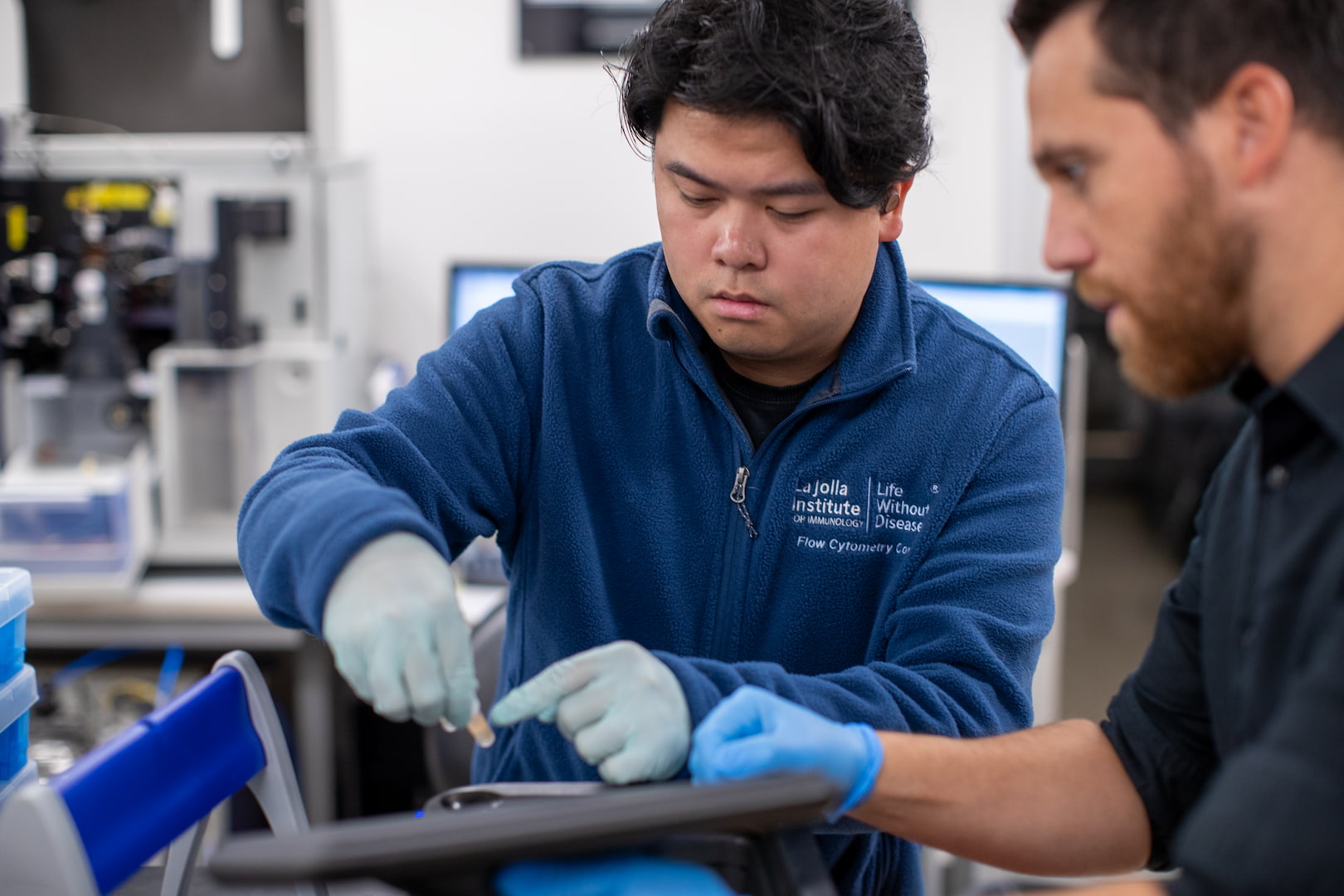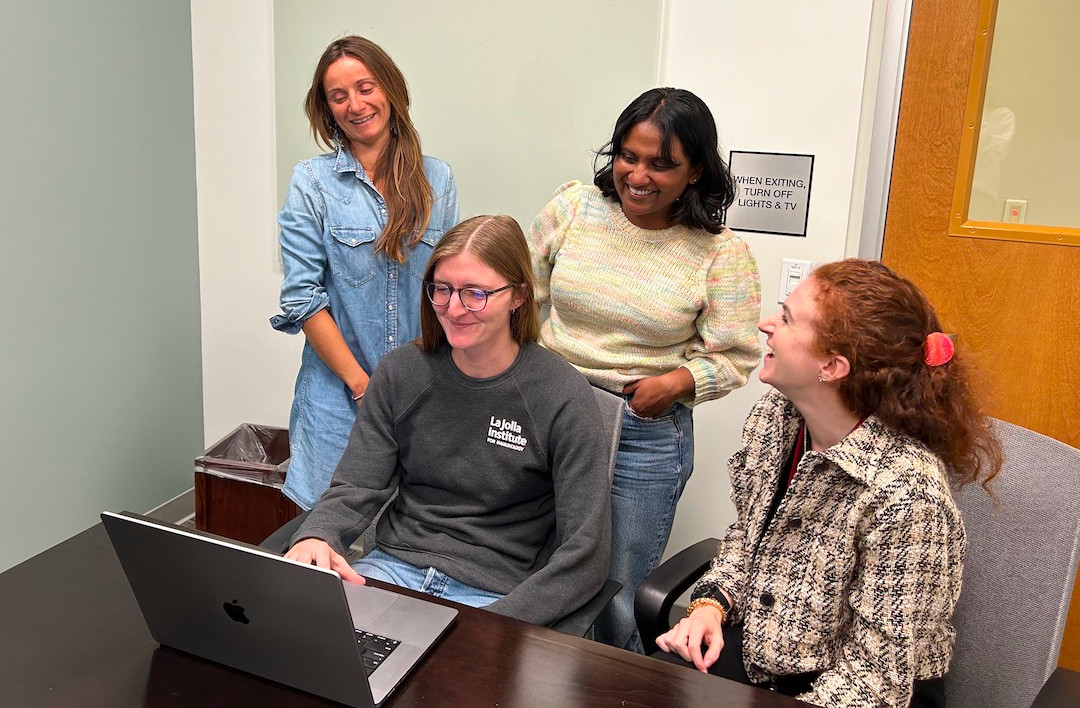LA JOLLA, CA—La Jolla Institute for Immunology (LJI) is honored to announce that Dr. Erica Ollmann Saphire, one of the world’s leading experts in pandemic and emerging viruses, will join the LJI faculty later this spring. Dr. Saphire directs an international consortium analyzing antibody therapeutics and vaccine responses and is currently a professor at Scripps Research in La Jolla.
“We are thrilled to welcome Erica to La Jolla Institute. She is a truly exceptional scientist, who uses molecular insights to bring together scientists and policymakers for scientific advancement and social change,” said Mitchell Kronenberg, Ph.D., LJI President and Chief Scientific Officer. “Having her here will accelerate the Institute’s efforts to solve humanity’s most pressing health challenges, and continue to elevate the remarkable science on the Torrey Pines Mesa.”
Dr. Saphire studies the three-dimensional structures of viral proteins to understand, at the molecular level, how viruses like Ebola, Marburg and Lassa are so deadly. In a series of groundbreaking discoveries, her team has determined the molecular structures of the Ebola, Sudan, Bundibugyo, Marburg, LCMV and Lassa virus surface glycoproteins; how these viruses suppress immune function and where human antibodies dock to defeat these viruses.
A widely recognized structural biologist, Dr. Saphire will establish a molecular imaging facility at La Jolla Institute for cryo-electron microscopy (cryo-EM). The extremely detailed images produced by cryo-EM reveal precisely how essential mechanisms of the immune system operate. Bringing Dr. Saphire’s expertise and state-of-the-art cryo-EM capabilities to the Institute will help LJI scientists drive pioneering advances from molecular structure to human immunology to global health.

“Immunology is taking center stage in science, uniting different disciplines to fight human disease,” said Dr. Saphire. “La Jolla Institute is top five in this area. The intellectual environment is outstanding, and I can’t wait to launch the next phase of my research program here.”
To resolve the gulf between results obtained in the lab and treatments needed for human beings, Dr. Saphire united 43 previously competing academic, industrial and government labs across five continents under the umbrella of the Viral Hemorrhagic Fever Immunotherapeutic Consortium (VIC), which she directs. The consortium’s goal is to understand which antibodies are most effective in patients and to streamline the research pipeline to provide antibody therapeutics against Ebola, Marburg, Lassa and other viruses.
Of significance to her field, Dr. Saphire was able to prove that certain viral proteins are surprisingly dynamic and can twist themselves into new shapes at critical stages during a virus’ life cycle to perform different functions. The discovery of what she calls “transformer”- proteins expanded the central dogma of molecular biology, which states that a protein’s sequence determines its one-and-only shape and thus its function.
Another major advancement by Dr. Saphire’s team revealed why neutralizing antibodies had been so difficult to elicit against endemic Lassa virus and provided the engineered molecules needed to elicit this type of protection. Her molecules are the now a critical standard of international vaccine efforts against Lassa by the Coalition for Epidemic Preparedness Innovations (CEPI) and others.
Dr. Saphire is the recipient of numerous accolades and grants, including the Presidential Early Career Award in Science and Engineering presented by President Obama at the White House; the Gallo Award for Scientific Excellence and Leadership from the Global Virus Network; young investigator awards from the International Congress of Antiviral Research, the American Society for Microbiology, American Society for Biochemistry and Molecular Biology, and the MRC Centre for Virus Research in the United Kingdom; the Investigators in the Pathogenesis of Infectious Disease Award from the Burroughs Wellcome Fund, and the Surhain Sidhu award for the most outstanding contribution to the field of diffraction by a person within five years of the Ph.D. Dr. Saphire has been awarded a Fulbright Global Scholar fellowship from the United States Department of State and a Mercator Fellowship from the German research foundation, Deutsche Forschungsgemeinschaft, to develop international collaborations around human health and molecular imaging through cryoelectron microscopy.
Dr. Saphire received a B.A. in biochemistry and cell biology and ecology and evolutionary biology from Rice University in Houston, Texas, and a Ph.D. in molecular biology from Scripps Research. She stayed on at Scripps Research as a Research Associate to conduct postdoctoral research before she joined the faculty. She is currently a Professor in the Department of Immunology and Microbiology. Following the transition, Dr. Saphire will become an adjunct faculty member with Scripps Research.
“Working with a scientist as dedicated as Erica has been a privilege,” said Dennis Burton, Ph.D., Chair of the Department of Immunology and Microbiology at Scripps Research. “Her intellect, her ingenuity and her zeal and stamina for investigating emerging pathogens are really making a difference in countering the threats posed by these pathogens.”
About La Jolla Institute for Immunology
The La Jolla Institute for Immunology is dedicated to understanding the intricacies and power of the immune system so that we may apply that knowledge to promote human health and prevent a wide range of diseases. Since its founding in 1988 as an independent, nonprofit research organization, the Institute has made numerous advances leading toward its goal: life without disease.
###


